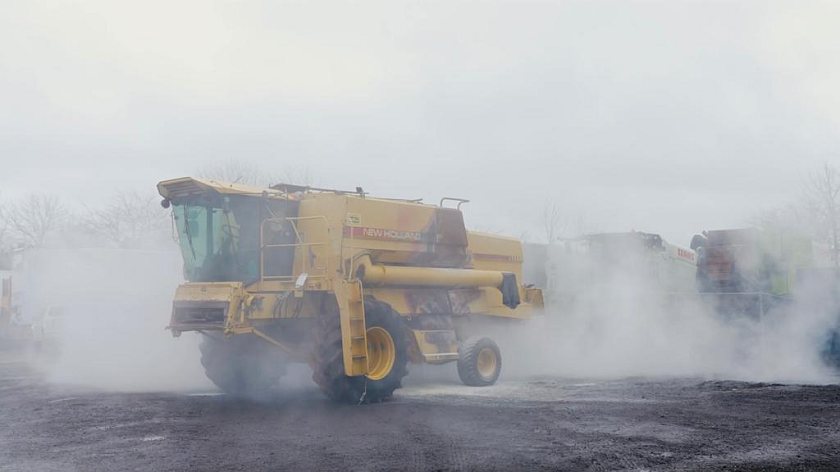Farm fires cost UK more than £100m as NFU Mutual issues urgent warning

Farm fires caused more than £100 million worth of damage across the UK last year, according to a new report from NFU Mutual, which warns that blazes remain one of the most destructive and dangerous threats facing agricultural businesses.
The rural insurer’s first Farm Fires Report estimates that farm fires cost £102 million in 2024. Although claims involving crops, buildings and farm equipment fell by 18%, the financial toll remained severe. Fire damage to agricultural vehicles added a further £37 million.
Electrical faults, arson and lightning strikes were the leading causes of farm fires. NFU Mutual noted that electrical faults are particularly common on farms due to ageing wiring, harsh environmental conditions, rodents and diy modifications that increase the risk of overheating and ignition.
The National Fire Chiefs Council (NFCC) said the report highlights a serious and ongoing national issue. Dave Swallow, the NFCC’s wildfire deputy lead, said: “Farm fires and wildfires regularly require significant fire service resource, often for extended periods of time, and they put lives at risk.”
He welcomed NFU Mutual’s push for suppression systems on machinery, saying they can prevent small sparks from becoming major incidents.
NFU Mutual said last year’s cool, wet summer and farmers holding on to machinery for longer had contributed to a fall in combine harvester fire costs — down 52% to an estimated £3.5m — but stressed that hundreds of combines, tractors and balers are still lost annually, along with thousands of acres of crops.
Hannah Binns, NFU Mutual’s Rural Affairs Specialist, said fire has been a persistent risk since the insurer was founded more than a century ago. “
"Back in 1910, seven farmers became frustrated at the losses caused by sparks from the nearby steam-powered railway,” she explained.
“More than a century on, fire remains a constant risk to UK farms, with dangerous and devasting farm fires becoming all too common.”
She said the impact extends far beyond physical damage. “These fires not only endanger the lives of farmers, farm workers and their families, but can destroy months or years of hard work,” she added, noting the emotional strain and the disruption to local infrastructure such as power lines and rural roads.
NFU Mutual is urging farmers to fit fire suppression systems to high-risk machinery like combines. These systems, common in industries such as forestry, detect and contain small fires before they spread; insurers also offer discounts for approved installations.
Binns said farms must have a clear emergency plan, prioritising safe evacuation, secure buildings and regular maintenance. NFU Mutual emphasised that electrics should always be checked by qualified electricians and that dust, debris and chaff must be cleared from machinery to reduce ignition risk. Hot works such as welding and grinding should be carried out only with strict safety controls.
The report also sets out practical steps for responding to a blaze, including calling 999 immediately, evacuating people and livestock if safe, assisting fire crews only under instruction and ensuring clear access for emergency vehicles. Tools such as the ‘what3words’ app can help pinpoint fire locations rapidly.
NFU Mutual hopes the report will prompt renewed conversations around prevention, best practice and improved resilience across the rural economy.








